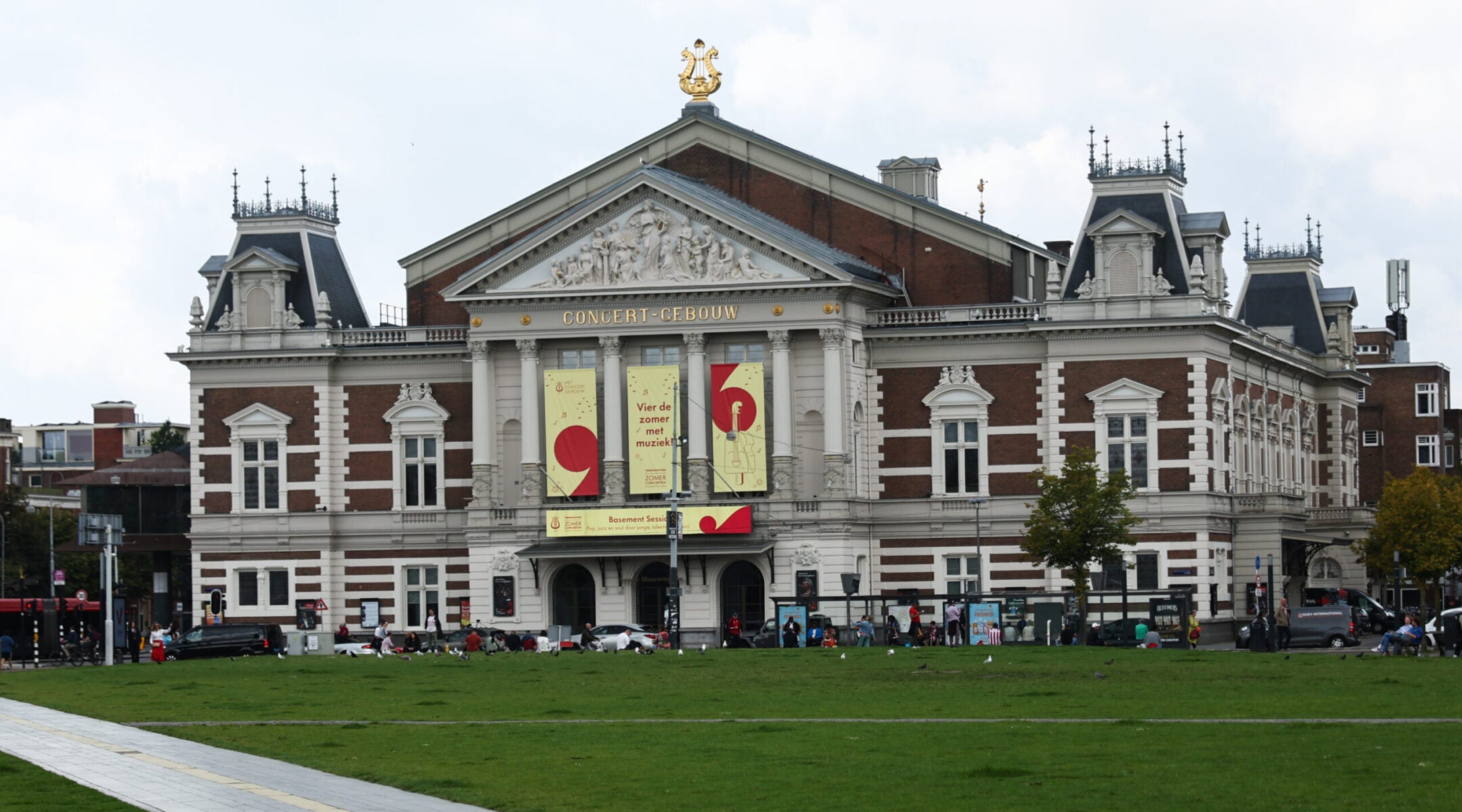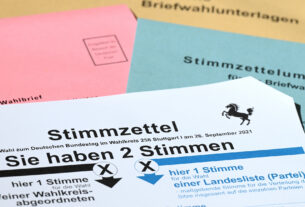The IDF’s chief cantor will be allowed to perform for Hanukkah in Amsterdam’s Royal Concert Hall — but not for everyone — after tensions over Israel ripped through one of the city’s most popular Jewish celebrations.
The Royal Concert Hall, or Concertgebouw, last week canceled the performance to be hosted by the Chanukah Concert Foundation because it featured Shai Abramson, the “representative cantor of the State of Israel” and chief cantor of the Israeli army. The organization said it based this decision on “the IDF’s active involvement in a controversial war” and “Abramson’s visible representation of that institution.”
The Chanukah Concert Foundation responded by threatening a lawsuit over “restriction of religious freedom.” The conflict spread to protests, rifts in the Jewish community and a war of words between the Israeli government and the mayor of Amsterdam. But on Wednesday, the Concertgebouw and the Jewish foundation announced a compromise.
They settled on separate concerts on Dec. 14, the eve of Hanukkah. During the afternoon, the Concertgebouw will host a public, family-focused concert without Abramson. In the evening, as sundown falls and the first Hanukkah candle is lit, Abramson will sing at two private concerts in the same hall for guests who already bought tickets to see him.
“Over the past week, we have seen the situation escalate into tension. We agree that this damaging trend must stop,” the organizations said in a joint statement. They added that proceeds from Abramson’s concerts would be donated to “a charity that promotes social cohesion in the city.”
Across the Netherlands, residents have grown increasingly critical of Israel and its two-year campaign in Gaza. A survey in September found that 58% of Dutch people wanted their government to take tougher actions against Israel, including boycotts, statements that Israel is committing genocide and recognition of a Palestinian state.
Abramson’s cancellation prompted an outcry among some prominent Dutch Jews and Jewish organizations.
Former lawyer Oscar Hammerstein called for a boycott of the Concertgebouw in the newspaper De Telegraaf. Leon de Winter, Jewish Dutch novelist and columnist for the paper, wrote that “Joseph Goebbels would happily give the Concertgebouw management a pat on the back.”
Dozens of people have protested outside the Concertgebouw in recent days. They were supported by the Center for Information and Documentation on Israel, a Dutch group that advocates for Israel and Jews.
David Serphos, a board member and spokesperson of the Chanukah Concert Foundation, said the cancellation “caused a lot of pain” among many Dutch Jews who see the Concertgebouw as a special place. The building first hosted a Hanukkah concert in December 1914, according to Barry Mehler, the head of a separate Hanukkah concert for the Jewish Music Concerts Foundation. The tradition was interrupted by World War II and revived only in 2015.
“It’s situated in a part of the city where a lot of Jews live,” Serphos said in an interview. “A lot of Jews go to the Concertgebouw either weekly or monthly. They are regular guests.”
An anti-Zionist Dutch Jewish group is planning to protest outside the Concertgebouw on Dec. 14, the day of the Hanukkah concerts, when they will also light a menorah. The group, Erev Rav, an anti-Zionist Jewish group, garnered over 2,200 signatures on a petition backing the Concertgebouw’s cancellation decision and said it was “deeply disappointed” by the compromise with the Chanukah Concert Foundation.
“The Concertgebouw’s initial refusal to provide a stage to a representative of a military perpetrating mass atrocities was a principled position grounded in an understanding of the way Zionist propaganda, including through the arts, sustains a genocidal regime,” Erev Rav said on Instagram, where it also accused the “Dutch Zionist lobby” of conflating anti-Zionism with antisemitism.
The Israeli government exerted its own pressure on the Concergebouw. Diaspora Minister Amichai Chikli said in a letter to Amsterdam Mayor Femke Halsema on Nov. 4 that Abramson’s cancellation was “an act of moral cowardice and discrimination.”
Referencing the Holocaust history of the Netherlands, where 75% of Dutch Jews were killed, Chikli said, “Once again, Jews are being told that their identity, their art, and their connection to Israel make them unwelcome.”
Halsema lashed back in her own letter. Acknowledging “the fear and pain felt within Amsterdam’s Jewish community,” she said that she “strongly and unequivocally” rejected Chikli’s suggestion of antisemitism by the Concertgebouw.
“I find the comparison with the persecution and extermination of Jews during the Second World War beyond despicable,” said Halsema. “That history demands accuracy and integrity, not instrumentalization.” She also rebuked “any attempt to pressure or intimidate” local leadership and said that Amsterdam “will not be governed by foreign institutions, nor driven by external political agendas.”
Serphos said the Chanukah Concert Foundation was satisfied with their compromise and hoped to move on from the conflict.
“We want to continue working with the Concertgebouw,” he said. “We want to look ahead and not look back, and we’re happy that we managed to find common ground.”
Power the news that matters to you. Before 2025 ends, help JR’s independent, award-winning newsroom document Jewish history in real-time.




